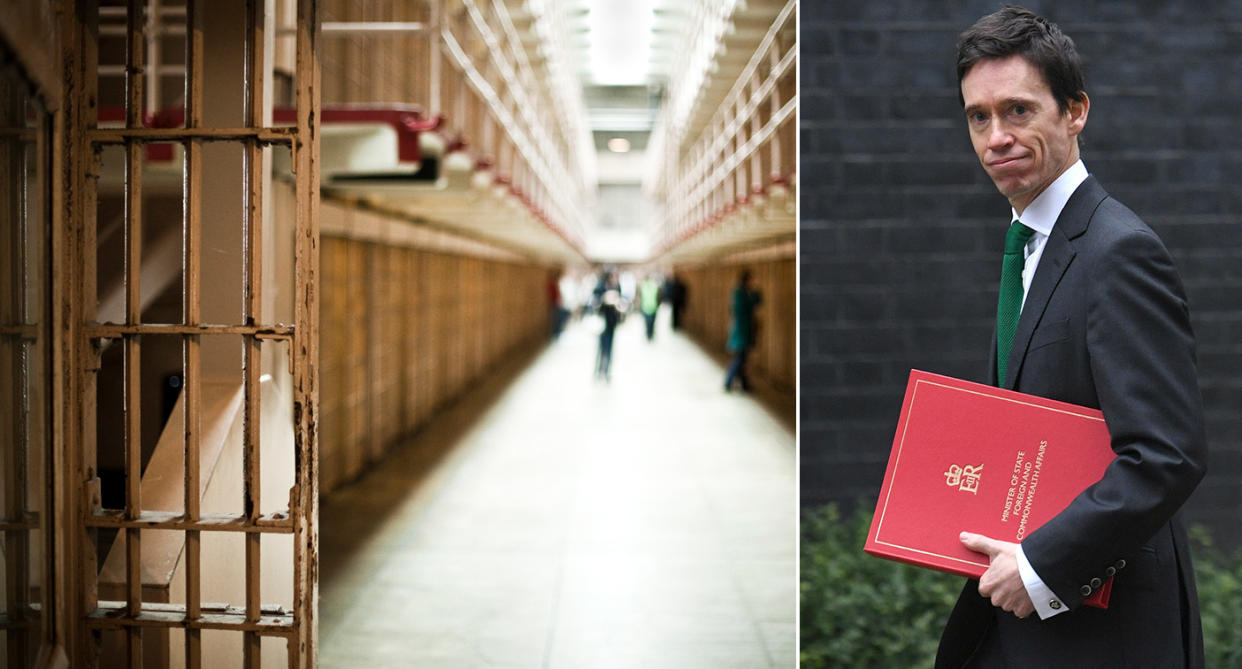Prisons minister Rory Stewart vows to quit if £10 million drive to help struggling prisons fails

The prisons minister has vowed to quit if a £10 million cash injection to tackle violence and drugs in struggling prisons fails.
Rory Stewart told the BBC he would resign if his package of measures fails to raise standards in 10 prisons that have been hit by “acute” problems.
The blitz is aimed at fighting issues including drugs and mobile phones in prisons as well as improving conditions.
It includes providing each one with new scanners capable of spotting packages inside bodies and sniffer dogs trained to detect new psychoactive substances (NPS) as well as carrying out repairs to basic infrastructure such as broken windows.
Announcing the £10 million package, Mr Stewart vowed: “I will quit if I haven’t succeeded in 12 months in reducing the level of drugs and violence in those prisons.”
He told BBC Breakfast: “I want to make a measurable difference. That’s what this investment is around.
“I believe in the prison service, I believe in our prison officers. I believe that this can be turned around and I want you to judge me on those results and I will resign if I don’t succeed.”
MOST POPULAR STORIES ON YAHOO UK TODAY
US media hits back at Donald Trump over claims of ‘fake news’ with coordinated editorials
Man jailed for making hoax bomb call because he was late for his flight
Police tell shopkeeper to remove ‘wanted’ poster because it breaches shoplifter’s rights
Jeremy Hunt: No-deal Brexit ‘would be a mistake we’d regret for generations’
Nasa probe detects glowing ‘wall’ around our solar system
Mr Stewart told BBC Radio 4’s Today programme he expected the success of the new drive to be measured by its impact on assault statistics.
Figures published last month showed self-harm incidents and assaults in prisons were at record levels, while finds of drugs and mobile phones increased by 23% and 15% respectively in the year to March.

He said: “In these 10 prisons in particular violence is a real problem so the fundamental thing that I want to do and I’d like to be judged on over the next 12 months is reducing that violence, reducing the number of assaults.”
Asked how much of a reduction he would consider a success – 25% or 10% – Mr Stewart said it would be “something of that sort”.
He added: “I’m not talking about a minor reduction, I’d want you to feel that this had been a substantial reduction and that it was going in the right direction.”
The 10 prisons selected for the programme are Hull, Humber, Leeds, Lindholme, Moorland, Wealstun, Nottingham, Ranby, Isis and Wormwood Scrubs.
The Ministry of Justice said they have all struggled with acute problems including high drug use, violence and building issues.
The package of measures includes: £6 million earmarked to bolster physical security with drug-detection dogs, body-scanners and improved perimeter defences; £3 million to improve the fabric of the jails themselves and £1 million on bespoke training programmes and interventions to give governors support to drive improvement.
A staff college model inspired by the military will be developed for governors, while more junior staff will be given support and confidence to challenge disruptive behaviour.
Officials said the scheme will be up and running in all 10 prisons by the end of the year, with “tangible results” expected within 12 months.
Peter Dawson, director of the Prison Reform Trust, said: “The governors of the 10 prisons will be pleased to have a little more money, wherever it comes from.”
He said Mr Stewart “must concentrate on the job only he can do – matching the demands on the system to the resource Parliament is prepared to make available for it”, adding: “It was a catastrophic failure to provide that balance which caused the collapse of prison safety after 2012 – trying to tell governors how to run prisons is not going to put it right.”
But shadow justice secretary Richard Burgon said the Government should “go much further”, adding: “It must set out an emergency plan across the prisons estate with substantial new funding to put an end to this crisis and make our prisons safe and humane for staff and inmates.”


